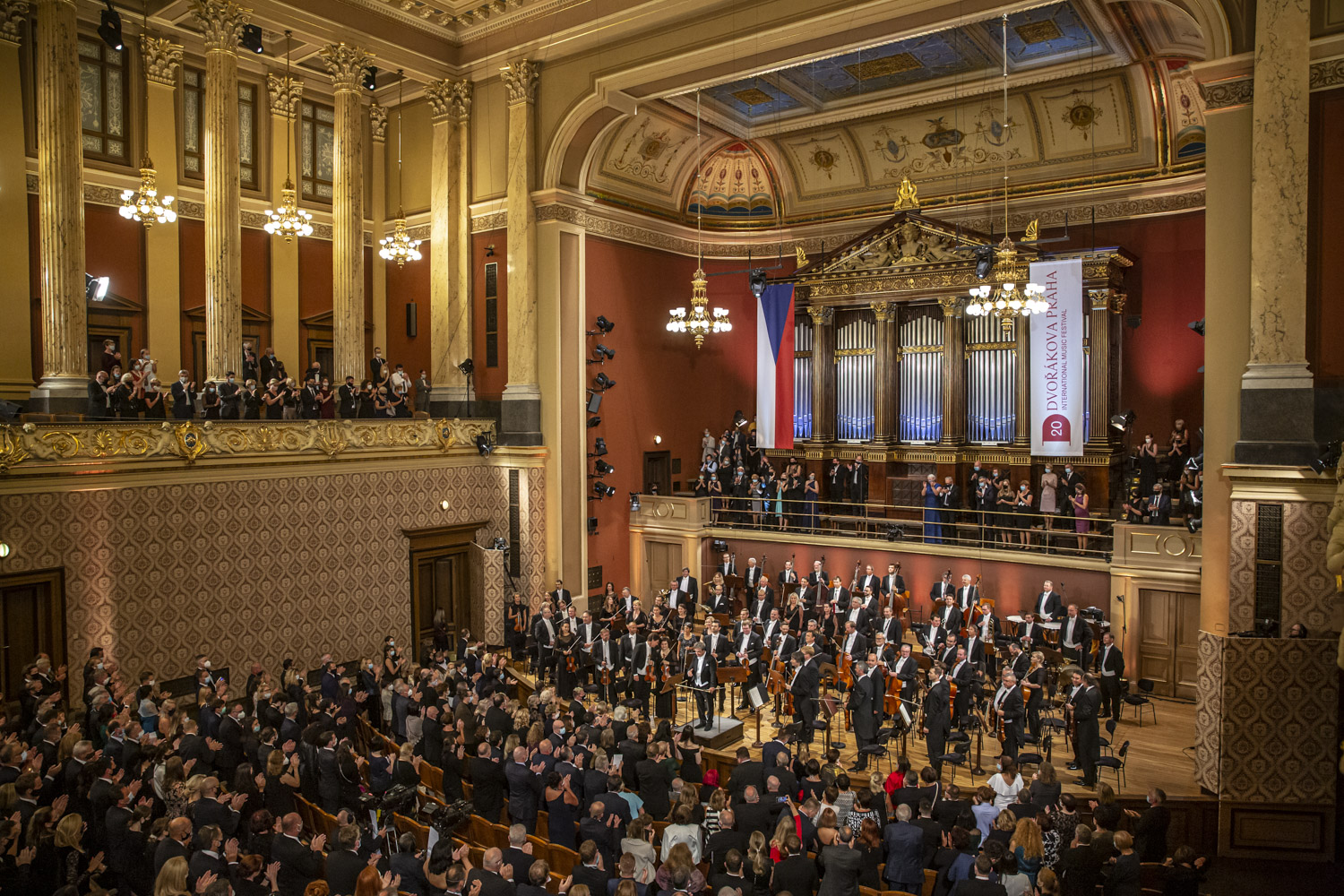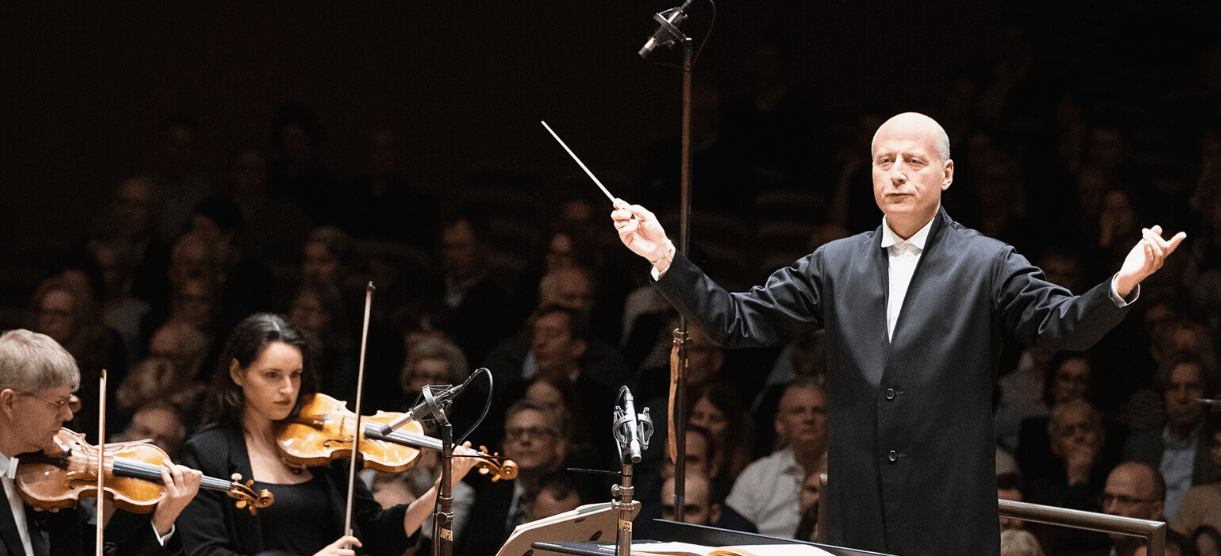
Antonín Dvořák: Concerto for Violoncello and Orchestra in B Minor, Op. 104, B. 191
Antonín Dvořák: Symphony No. 9 in E Minor, Op. 95, B. 178, ‘From the New World’
This year’s festival will open just one day before Antonín Dvořák’s birthday, and with great pleasure, Zurich’s Tonhalle-Orchester, joined by its chief conductor Paavo Järvi and cellist Anastasia Kobekina, will wish him a happy birthday in advance.
By now, it is no secret that the first piece of music to be performed at this year’s Dvořák Prague will again be the Cello Concerto. This is particularly exciting, as it will be played on an incomparably beautiful instrument, a Stradivarius, in the hands of a fittingly charismatic performer. This magnificent piece, full of energy, nostalgia, and a longing for home, will be performed by Anastasia Kobekina, accompanied by a masterful orchestra with a wealth of experience performing Dvořák. Following this, the musicians will draw on their deep experience to perform Symphony No. 9 in E Minor, ‘From the New World’. This will round off the joint performance of Dvořák’s two most famous works – a majestic opening fanfare to launch the festival in style.
The following day, Järvi and the Tonhalle-Orchester will be joined by pianist Ivo Kahánek, and together they will add Beethoven’s Piano Concerto No. 3 and Anton Bruckner’s Symphony No. 9 to the festival’s repertoire. The day after that, on 9 September, Anastasia Kobekina will be joining the Pavel Haas Quartet to launch the Chamber Series.
Classical music from Messiaen to Mozart: That is the passion of the Tonhalle-Orchester Zürich – and has been since 1868. When it plays with Paavo Järvi, a special energy is generated, because no concert is like the previous one. The orchestra loves the diverse stimuli it receives from its guest conductors and enjoys being challenged by internationally acclaimed soloists.
Along with its audience, the orchestra maintains a lively curiosity for unknown masterpieces and newly commissioned works. Founded by musicians from Zurich, it proclaims its musical home in its name and carries its excellent reputation around the world by means of tours and recordings.
In the Tonhalle-Orchester Zürich, 100 musicians play around fifty different programmes in over 100 concerts per season. The orchestra brings together musicians from twenty nations. Guest appearances have taken it to 100 cities in more than thirty countries. In addition to the orchestral projects, the musicians also create their own chamber music series and may be heard as soloists in a series specifically devoted to them. The Music Director Paavo Järvi is the eleventh principal conductor of the Tonhalle-Orchester Zürich; David Zinman is its conductor emeritus.
The orchestra has released more than forty recordings on CD, including complete cycles of the symphonies of Beethoven, Mahler, Brahms and Schubert. Its first recording with Paavo Järvi was devoted to orchestral works by Olivier Messiaen and was awarded the Diapason d’Or in 2019. This was followed by recordings of all of Tchaikovsky’s symphonies and other orchestral works; the first release with the Fifth Symphony was awarded the Preis der Deutschen Schallplattenkritik 2020 and the Diapason d’Or 2021. The latest CD release with works by John Adams is highly praised by the critics and has already been awarded a Diapason d'Or. Together with Paavo Järvi the orchestra recently received the Europäischer Kulturpreis 2022.
source: tonhalle-orchester.ch
photo © Gaëtan Bally
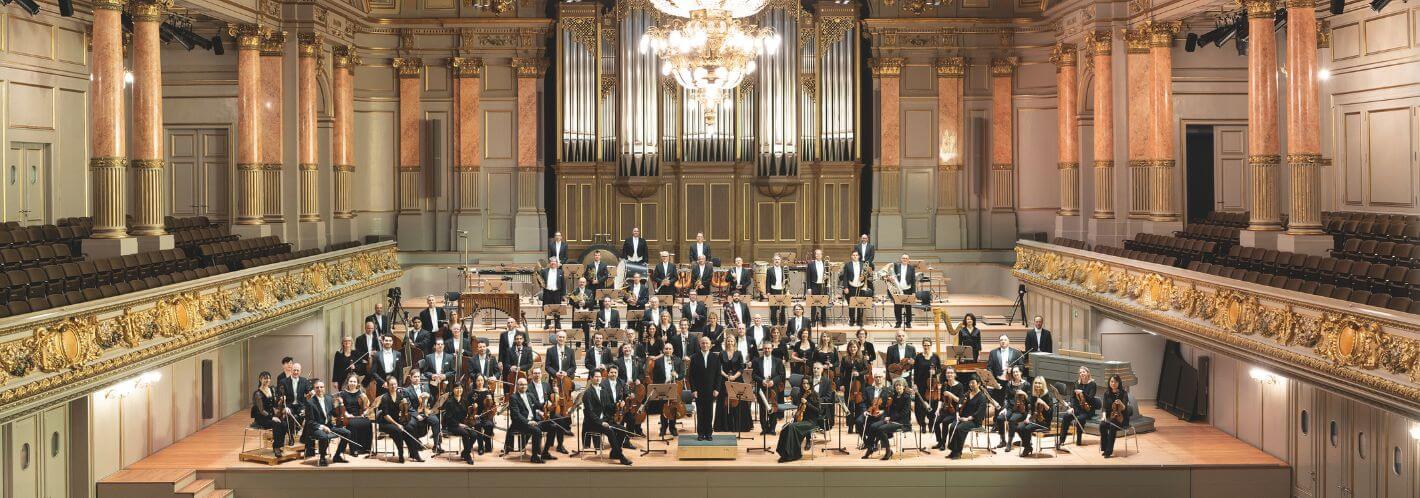
Estonian-born Grammy winner Paavo Järvi is regarded as one of the most important conductors today, working in close partnership with the greatest international orchestras. He is the Music Director of the Tonhalle-Orchester Zürich, since 2004 Artistic Director of the Deutsche Kammerphilharmonie Bremen, and the founder and Artistic Director of the Estonian Festival Orchestra.
Having last season completed his Mendelssohn cycle with the Tonhalle-Orchester Zürich, in the 2023–24 season he continues their Bruckner focus, as well as embarking on a Mahler cycle with CD recordings. Further recent releases include live recordings of the complete Tchaikovsky symphonies and newly issued orchestral works by John Adams to mark the composer’s 75th birthday.
Each season concludes with two weeks of performances and conducting masterclasses at the Pärnu Music Festival in Estonia, which Paavo Järvi founded in 2011. The success of the festival and its resident ensemble – the Estonian Festival Orchestra – has led to a number of highly prestigious invitations to the Berlin Philharmonie, the Konzerthaus in Vienna, the BBC Proms and Suntory Hall in Tokyo. Paavo Järvi is also much in demand as a guest conductor, maintaining close links with his previous orchestras all over the world.
In addition to his permanent positions, Paavo Järvi is much in demand as a guest conductor, regularly appearing with the Berlin Philharmonic, the Royal Concertgebouw Orchestra, the Philharmonia and the New York Philharmonic. He also continues to enjoy close relationships with many of the orchestras of which he was previously Music Director, including the Orchestre de Paris, the Frankfurt Radio Symphony and the NHK Symphony Orchestra.
In 2013, the Estonian President awarded him the Order of the White Star for his commitment to his country’s culture. Further prizes and accolades include a Grammy Award in 2003 for cantatas by Sibelius; in 2015, “Artist of the Year” awarded by Gramophone magazine (UK) and Diapason (France), as well as the Sibelius Medal; in 2019, “Conductor of the Year” (Opus Klassik) and the Rheingau Music Prize; and most recently, the 2022 European Cultural Prize.
source: paavojarvi.com
photo © Gaëtan Bally
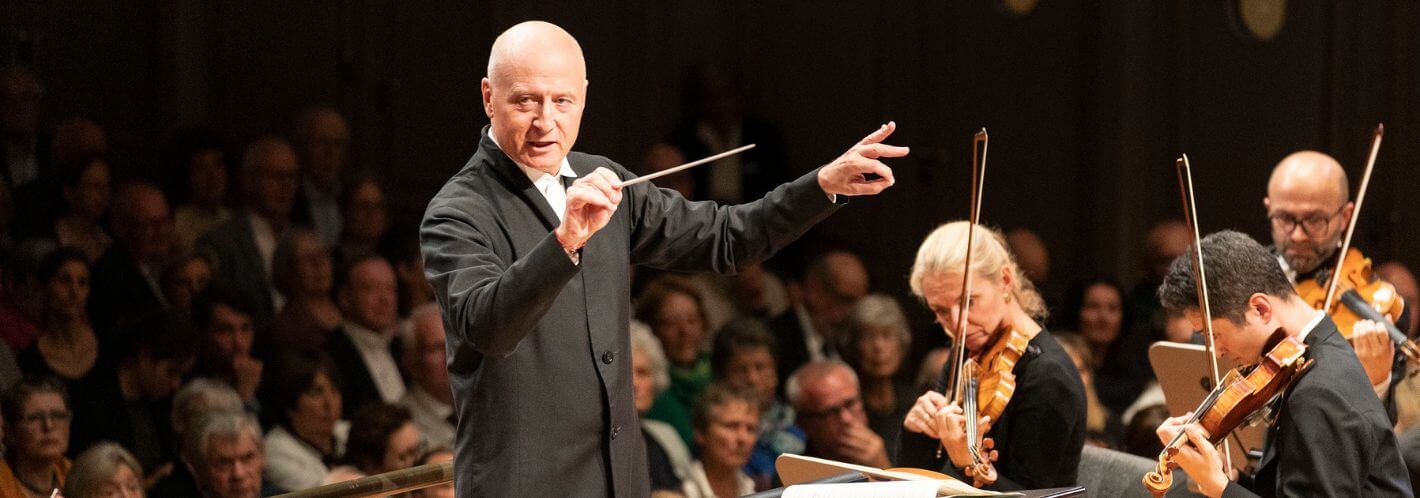
Described by Le Figaro as an "unrivaled musician", Anastasia Kobekina is known for her breath-taking musicality and technique, her extraordinary versatility and her infectious personality.
Highlights of the 2023/24 season include performances with renowned orchestras such as the Tonhalle Orchestra Zurich conducted by Paavo Järvi, the DSO Berlin with Andris Poga, Frankfurt Radio Symphony with Anja Billhmeier, the Czech Philharmonic Orchestra conducted by Jakub Hrusa, the Orchester National du Capitole de Toulouse, the Gstaad Festival Orchestra, and the Orchester National de Belgique.
Anastasia's performances take her to prestigious venues and festivals worldwide, including the Wigmore Hall, Concertgebouw Amsterdam, Lincoln Center, Konzerthaus Berlin, Tonhalle Zurich, Les Flâneries Musicales de Reims, Easter Festival of Aix-en-Provence, Festspiele Mecklenburg Vorpommern, Gstaad Menuhin Festival, Schleswig-Holstein Music Festival, and Rheingau Music Festival.
As a soloist, Anastasia has collaborated with esteemed orchestras such as the Konzerthausorchester Berlin, Kammerphilharmonie Bremen, Wiener Symphoniker, BBC Philharmonic, Kremerata Baltica, Tchaikovsky Symphony Orchestra Moscow, Wiener Kammerorchester, Symphoniker Hamburg, Orchestra della Svizzera Italiana, Royal Liverpool Philharmonic, Barcelona Symphony, and National Orchestra d’Ile de France. She has worked under the guidance of renowned conductors including Krzysztof Penderecki, Heinrich Schiff, Omer Meir Wellber, Vladimir Spivakov, Charles Dutoit, Jean-Christophe Spinosi, and Dmitrij Kitajenko.
Anastasia has achieved recognition at international competitions such as the Tchaikovsky Competition (St. Petersburg 2019) and Enescu Competition (Bucharest 2016). She was selected as a BBC New Generation Artist from 2018-2021 and received the Borletti-Buitoni Trust Artists award in 2022.
Born in Russia, Anastasia began her cello studies at the age of 4. She studied with Frans Helmerson and Prof. Jens-Peter Maintz in Germany before continuing her studies in Paris with Jérôme Pernoo. Currently, she is pursuing studies in baroque Violoncello with Kristin von der Goltz in Frankfurt.
Kobekina performs on Violoncello Antonio Stradivarius from 1698 generously loaned by Stradivari Stiftung Habisreutinger.
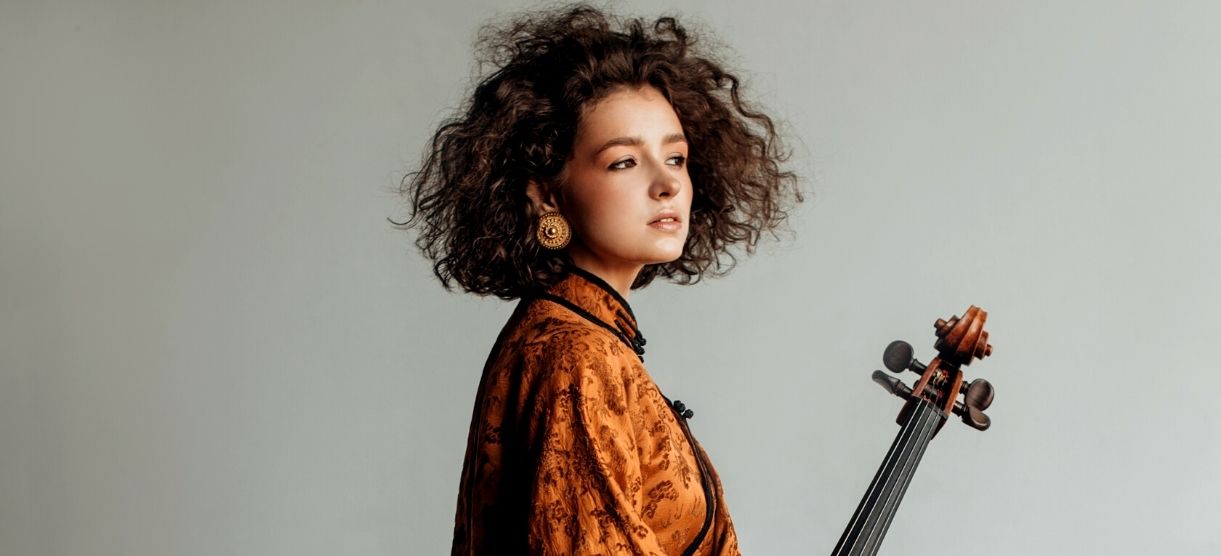
The Rudolfinum is one of the most important Neo-Renaissance edifices in the Czech Republic. In its conception as a multi-purpose cultural centre it was quite unique in Europe at the time of its construction. Based on a joint design by two outstanding Czech architects, Josef Zítek and Josef Schultz, a magnificent building was erected serving for concerts, as a gallery, and as a museum. The grand opening on 7 February 1885 was attended by Crown Prince Rudolph of Austria, in whose honour the structure was named. In 1896 the very first concert of the Czech Philharmonic Orchestra took place in the Rudolfinum's main concert hall, under the baton of the composer Antonín Dvořák whose name was later bestowed on the hall.
